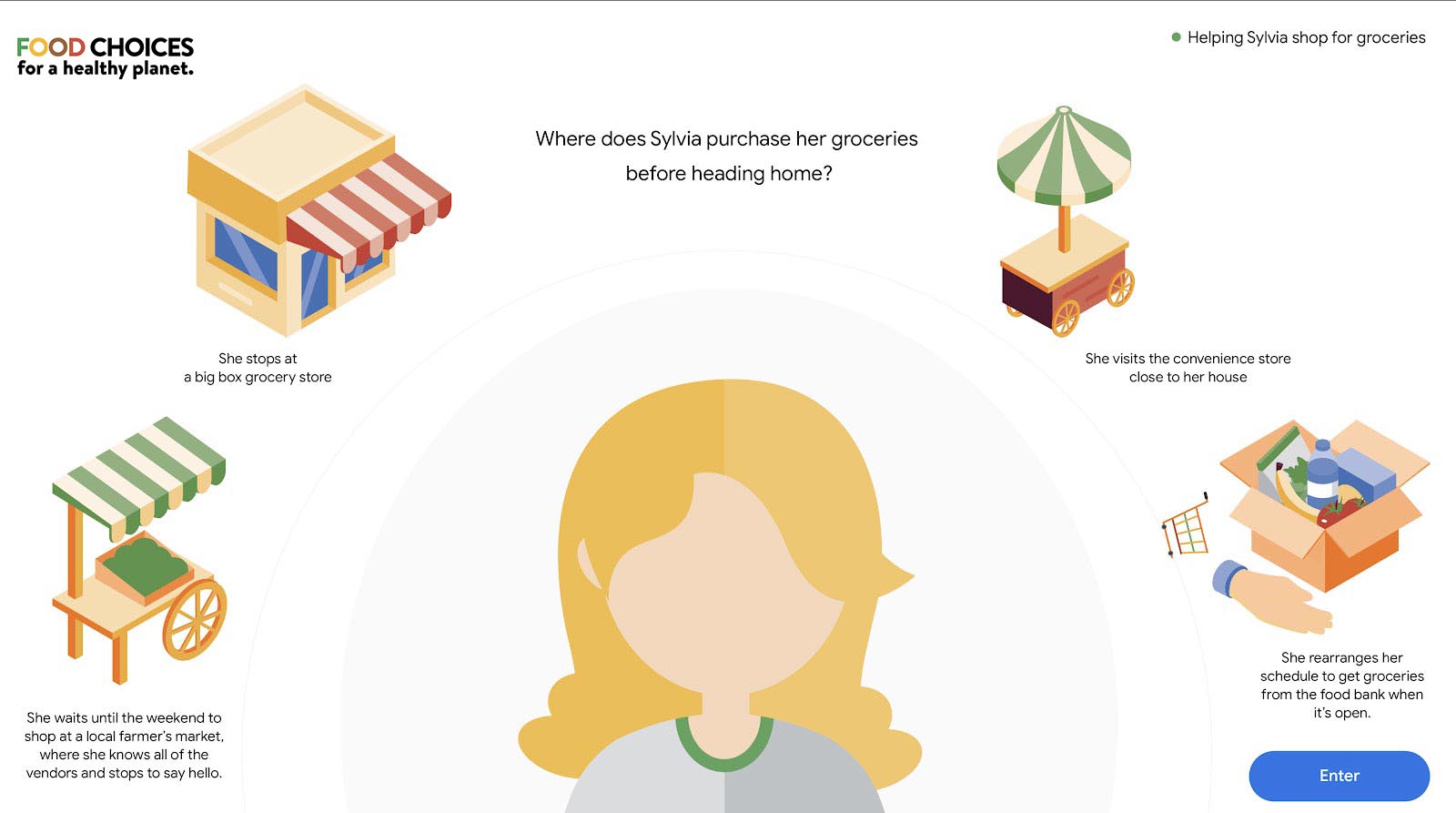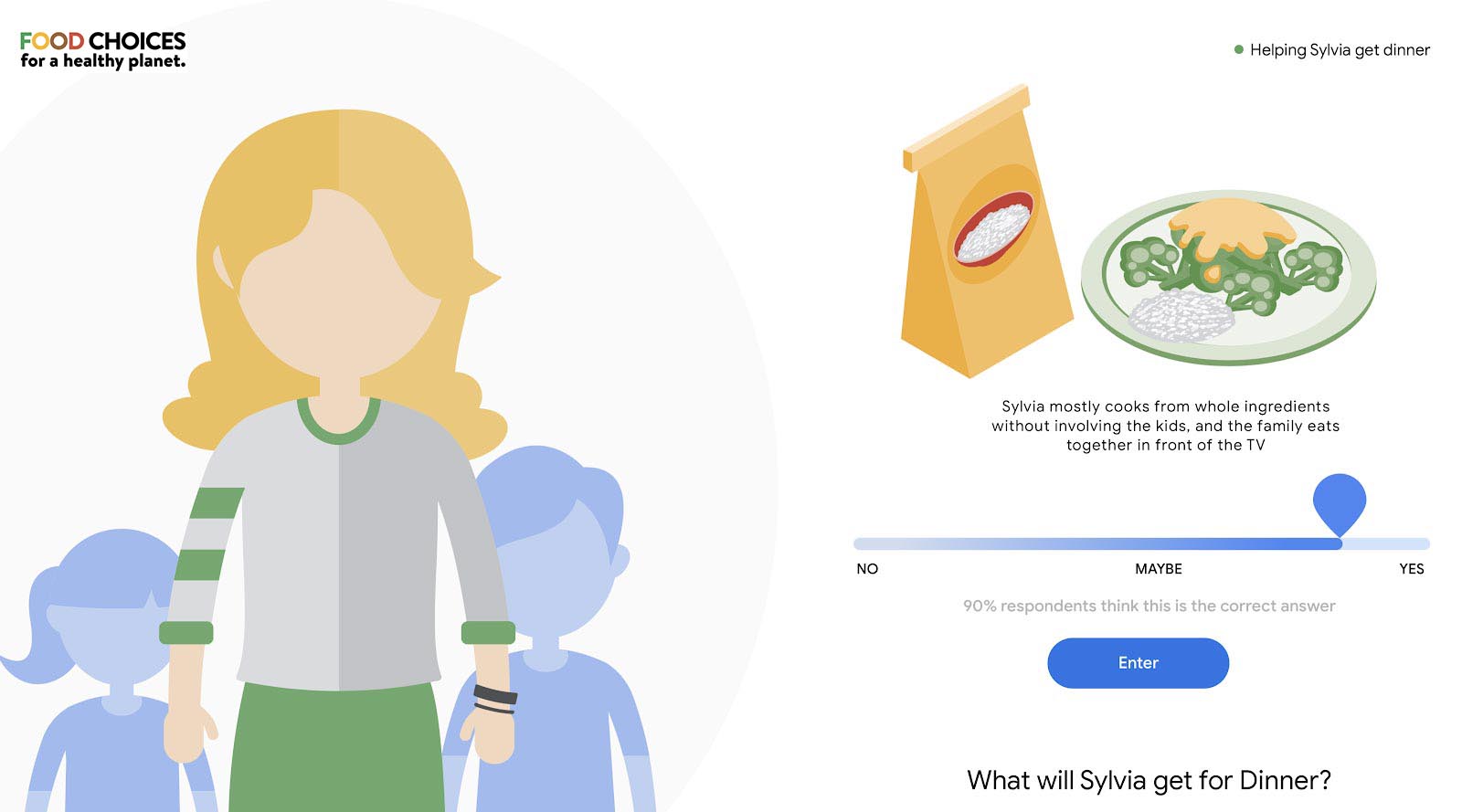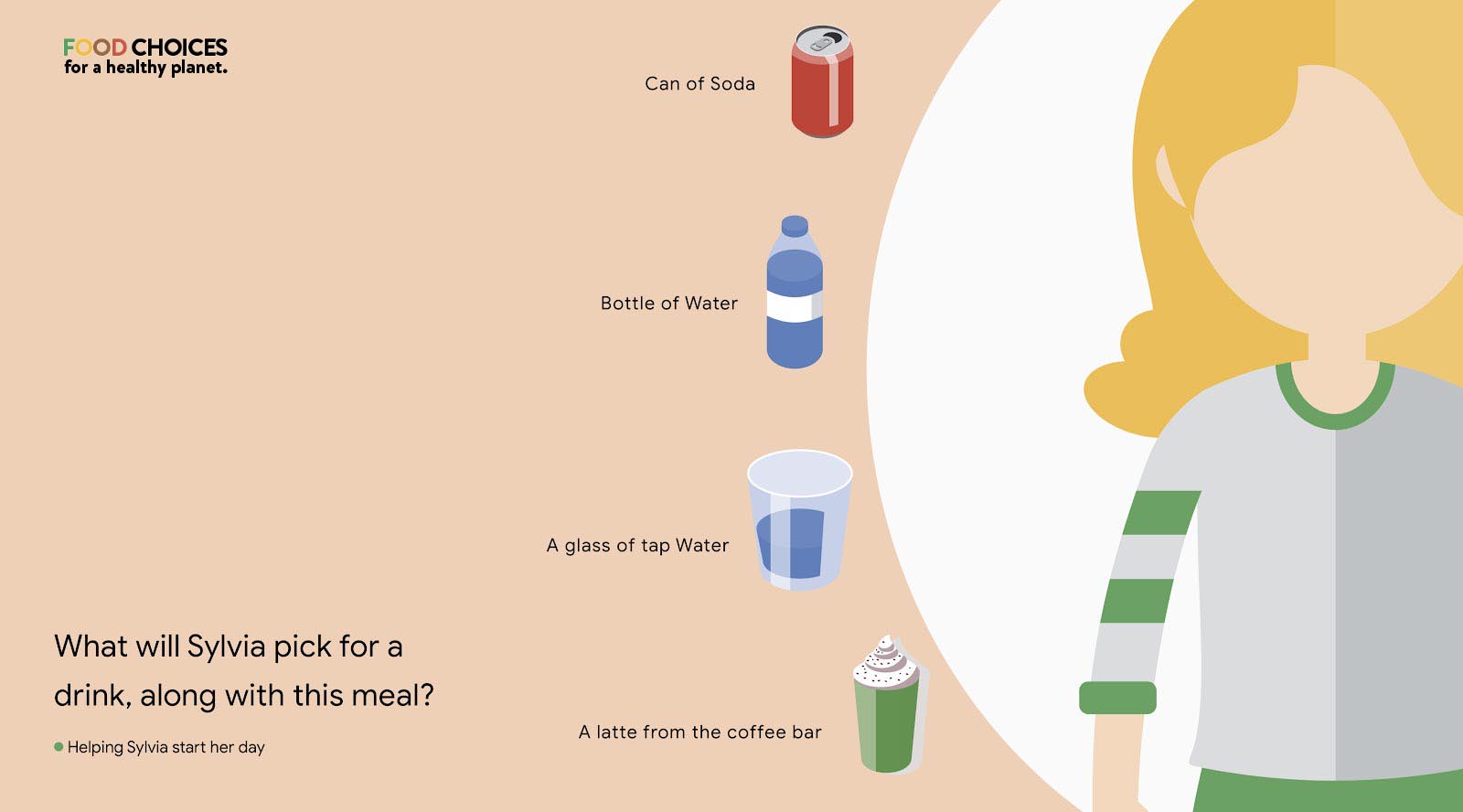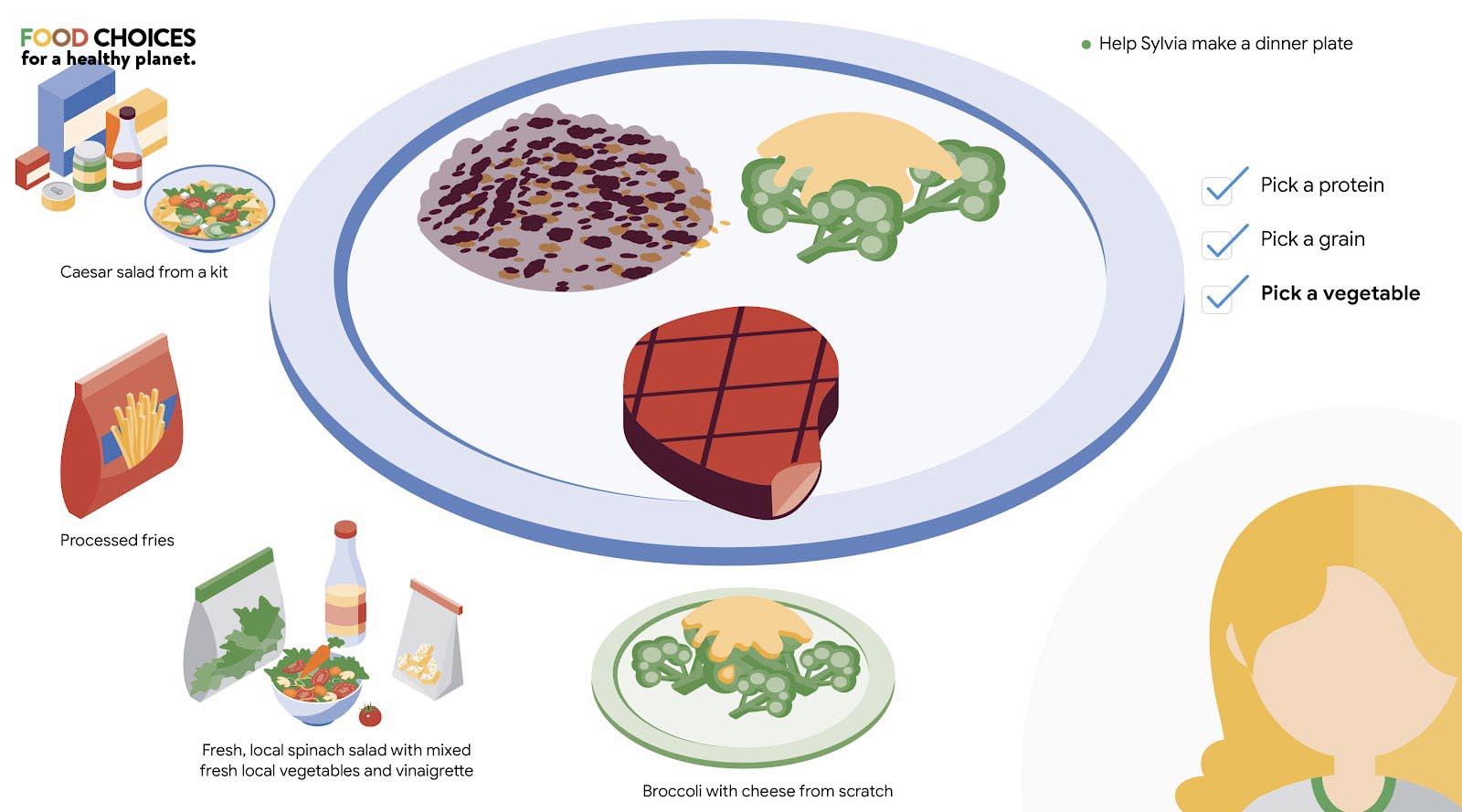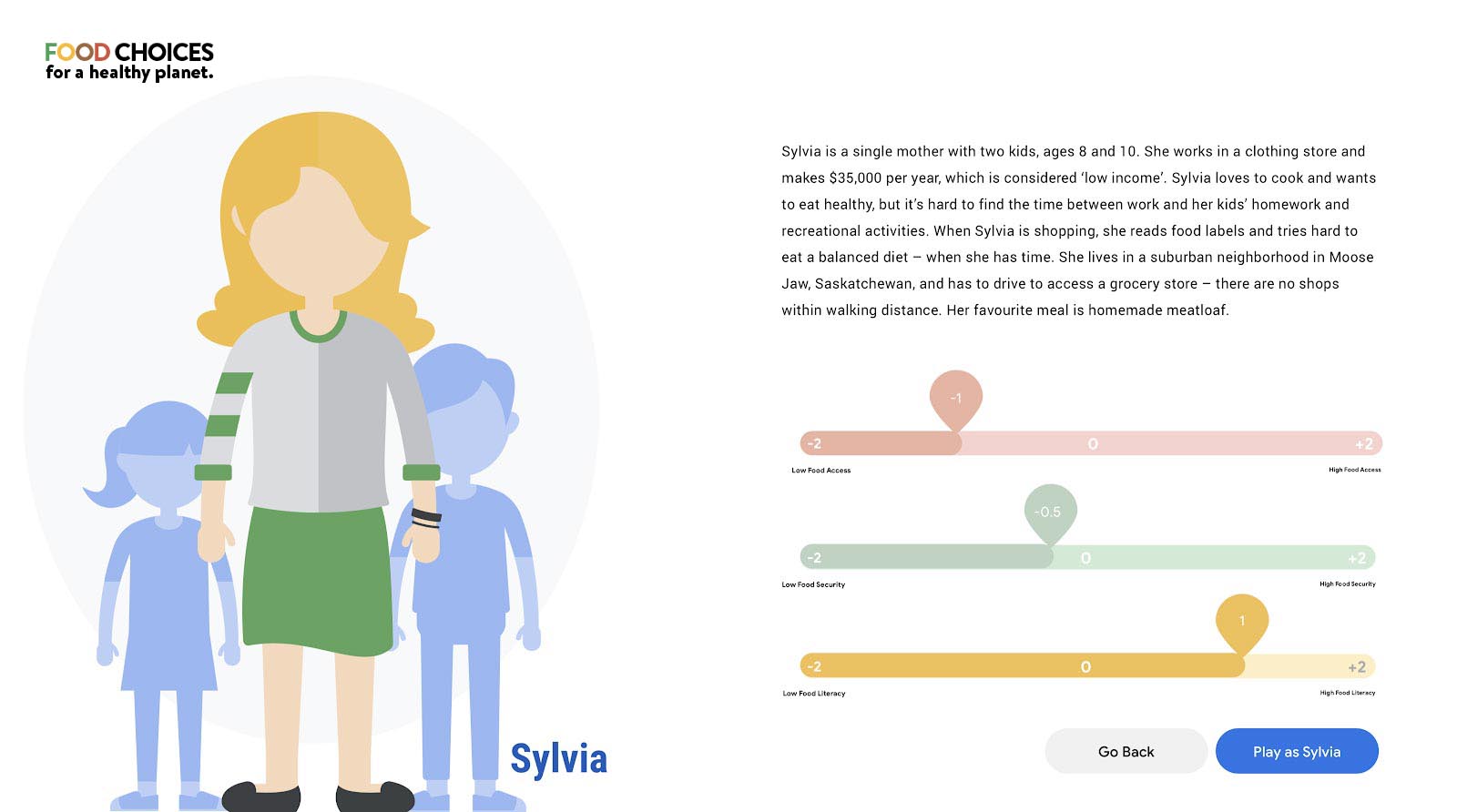Alice Waters
Chef, Author, Food Activist, Founder
Edible Schoolyard Project
Alice Waters is a chef, author, food activist, and the founder and owner of Chez Panisse Restaurant in Berkeley, California. She has been a champion of local sustainable agriculture for over four decades. In 1995 she founded the Edible Schoolyard Project, which advocates for a free school lunch for all children and a sustainable food curriculum in every public school. She has been Vice President of Slow Food International since 2002. She conceived and helped create the Yale Sustainable Food Project in 2003, and the Rome Sustainable Food Project at the American Academy in Rome in 2007. Her honors include election as a Fellow of the American Academy of Arts and Sciences in 2007; the Harvard Medical School’s Global Environmental Citizen Award, which she shared with Kofi Annan in 2008; induction into the French Legion of Honor in 2010; and induction into the National Woman’s hall of Fame in 2017. In 2015 she was awarded the National Humanities Medal by President Obama, proving that eating is a political act, and that the table is a powerful means to social justice and positive change. Alice was most recently awarded the honor of “Cavaliere dell’Ordine al Merito della Repubblica Italiana” in 2019. Alice is the author of fifteen books, including New York Times bestsellers The Art of Simple Food I & II, The Edible Schoolyard: A Universal Idea, and, a memoir, Coming to My Senses: The Making of a Counterculture Cook.
Allison Hess
Vice President of Health Services
Geisinger
Allison Hess is the Vice President of Health Services at Geisinger. She has been part of the Geisinger family for 12 years and is responsible for the oversight and implementation of health and wellness programs for Geisinger patients and insured members, employees and community members. She started her career in community health education/corporate wellness and has continued to expand to include community-based population health initiatives driven by data analysis and clinical outcome measurements.
Ms. Hess earned her bachelor of science in Health Education with a concentration in Psychology from Bloomsburg University. She is currently pursuing her MBA and has been recognized for her leadership within the organization. She has been the recipient of several awards focused in various areas of health including health equity, worksite wellness and supply chain. She has also been recognized nationally for her work with the Fresh Food Farmacy program.
Ms. Hess has 20 years of experience in the health and wellness field. Her most recent work involves community based strategies impacting food insecurity and other social determinants of health. She is deeply committed to the health and wellbeing our patients, members and communities.
Ann Cooper
Chef, Founder
Chef Ann Foundation
Chef Ann Cooper is an internationally recognized author, chef, educator, public speaker, and advocate of healthy food for all children. In a nation where kids are born with shorter estimated life expectancies than their parents due to diet-related disease, Chef Ann has been a constant champion of school food reform as an important avenue through which to improve childhood nutrition.
In 2009, Chef Ann founded the Chef Ann Foundation, a nonprofit organization dedicated to helping schools take action so that every child has daily access to fresh, healthy food.
I envision a time, soon, when being a chef working to feed children fresh, delicious, and nourishing food will no longer be considered renegade.
– Chef Ann Cooper
Also known as the “Renegade Lunch Lady,“ Chef Ann serves as Director of Food Services for Boulder Valley School District in Boulder, Colorado, and is Partner of Lunch Lessons, LLC, a consultancy for school districts going through large-scale food change. Ann attends many national conferences and performs regular Speaking Engagements. Visit our Multimedia Center to view some of Ann’s notable lectures, including her four TED Talks.
A graduate of the Culinary Institute of America, Ann has 40 years of experience as a chef, including 17 years in school food programs. Her books Bitter Harvest and Lunch Lessons: Changing the Way We Feed Our Children have made her a leading advocate for safe, sustainable food. To raise further awareness about the value of healthy food systems, Chef Ann has held several advisory positions:
- Executive committee member, Chefs Collaborative
- Fellow, W.K. Kellogg Foundation Food & Society Policy
- Board member, USDA’s National Organic Standards Board (by congressional appointment)
- Member, Google Innovation Lab for Food Experiences
- President and board member, Women’s Chefs and Restaurateurs
- President, American Culinary Federation of Central Vermont
- Advisory Board Member, Real Food for Kids
Chef Ann has also been honored by the National Resources Defense Council, awarded an honorary doctorate from SUNY Cobleskill for her work on sustainable agriculture, and received IACP’s 2012 Humanitarian of the Year award. Named one of the “Influential 20” by Food Service Director Magazine and one of the top 15 Crusaders for Health in the Food Industry by Greatist.com, Ann has also received the Women Chefs and Restaurateurs’ Community Service Award and a Special Inspirational Award from the Susan B. Komen Foundation. In 2016, she was named “One of the Top 50 Food Activists” by the Academy of Culinary Nutrition.
Anna Lappé
Executive Director
Global Alliance for the Future of Food
Lappé is the founder or co-founder of three organizations, including the Small Planet Institute, Real Food Media, and the Small Planet Fund, and the founder of the Food Sovereignty Fund of the Panta Rhea Foundation. She currently leads a multi-million dollar grantmaking portfolio at Panta Rhea, which is a member of the Global Alliance.
As the Global Alliance enters its 11th year, it has significantly expanded its work on food systems as a critical climate solution and has advanced efforts around decolonizing food systems and addressing justice and equity issues. With Lappé at the helm, the organization aims to leverage the unique resources and power of the Global Alliance to champion just and equitable solutions and fundamentally transform global policy and economic structures for good.
Cathryn Couch
Founder and CEO
Ceres Community Project
Cathryn Couch is the founder and CEO for Ceres Community Project, an innovative and award-winning non-profit organization working to foster health by connecting people to one another and to a healthier food system. Ceres provides 100,000 organic meals annually to primarily low-income people struggling because of a health condition such as cancer or heart disease. Youth volunteers grow food and prepare the meals in Ceres’ two organic gardens and three kitchens as part of a youth development and culinary education program. The organization also provides ongoing nutrition and culinary education programming through community health centers and the Sonoma County library system.
She launched Ceres Community Project in 2007 as a one day a week volunteer project and has grown it to a $2.5 million budget with 3 program sites in the Bay Area and a global network with programs based on Ceres’ model operating in 12 US communities and Denmark. Cathryn is a founding member of the California Food is Medicine Coalition which is currently implementing a three-year statewide medical nutrition pilot for MediCal patients with congestive heart failure. In 2012 she received a Silver Jefferson Award for Public Service, one of only 5 awarded in the San Francisco Bay region, and was a national finalist for The Robert Wood Johnson Foundation’s Community Health Leaders Award. In 2013 she received the Leader in Sustainability Award from the Leadership Institute for Ecology and the Economy. She was a finalist for the James Irvine Leadership Award in 2015 and was named the Red Cross Adult Humanitarian Hero for Northern California. She was named one of 25 CNN Heroes in 2016.
David Eisenberg
Director of Culinary Nutrition
Harvard T. H. Chan School of Public Health
David M. Eisenberg, MD, is the director of culinary nutrition and adjunct associate professor of nutrition at the Harvard T. H. Chan School of Public Health. He is the founding Co-Director of the Healthy Kitchens, Healthy Lives conference, and founding Co-Director of The Culinary Institute of America -Harvard Chan Teaching Kitchen Collaborative, a group of 30+ organizations with teaching kitchens, intended to establish and evaluate best practices relating to nutrition, culinary and lifestyle education.
From 2000-2010, Dr. Eisenberg served as the Bernard Osher Distinguished Associate Professor of Medicine at Harvard Medical School and founding chief of the Division for Research and Education in Complementary and Integrative Medical Therapies at Harvard Medical School. He simultaneously served as the director of the Program in Integrative Medicine at the Brigham & Women’s Hospital.
David is a graduate of Harvard College and Harvard Medical School and is Board Certified in Internal Medicine.
In 1979, under the auspices of the National Academy of Sciences, David served as the first U.S. medical exchange student to the People’s Republic of China.
He has served as an advisor to the National Institutes of Health, the Food and Drug Administration, the National Academy of Sciences and the Federation of State Medical Boards with regard to complementary, integrative and lifestyle medicine research, education and policy.
Dean Ornish
Founder / President
Preventive Medicine Research Institute
Dean Ornish, M.D., is founder/president of the non-profit Preventive Medicine Research Institute and Clinical Professor of Medicine at UCSF and UCSD. He received his M.D. from Baylor College of Medicine, was a clinical fellow at Harvard Medical School, and his residency in internal medicine at the Massachusetts General Hospital. He earned a B.A. in Humanities summa cum laudefrom the University of Texas in Austin, where he gave the baccalaureate address.
He directed clinical research demonstrating, for the first time, that lifestyle medicine may reverse even severe heart disease and slow, stop or reverse early-stage prostate cancer, change gene expression and reverse aging by lengthening telomeres. Medicare created a new benefit category to cover his program. He is currently directing the first study to determine if lifestyle changes can reverse early Alzheimer’s disease.
He is the author of 7 books, all national bestsellers, including UnDo It! His three main-stage TED.com talks have been viewed by almost 6 million people.
His research was published in the leading medical journals and featured in all major media, including cover stories in Newsweek, TIME, and USNWR. He has written a column for TIME, Newsweek and Reader’s Digest, is a LinkedIn Influencer, and was Medical Editor of The Huffington Post 2010-2016. He established a lifestyle medicine clinic at the St. Vincent de Paul Homeless Shelter in San Francisco where over 30,000 homeless people were treated.
He was appointed by President Clinton to the White House Commission on Complementary and Alternative Medicine Policy and by President Obama to the White House Advisory Group on Prevention, Health Promotion, and Integrative and Public Health.
Dexter Shurney
President
Blue Zones Wellbeing Institute
Dr. Dexter Shurney is Senior Vice President and Chief Medical Officer of Community Wellbeing and the Blue Zones Institute for Adventist Health, a faith-based, nonprofit integrated health system serving more than 80 communities on the West Coast and Hawaii. The Blue Zone Institute is a “Living Lab” to create, study, and codify best practice, including a lifestyle medicine approach to care, that can be replicated across regions and communities of greatest need. Previously, Dr. Shurney held the position of Chief Medical Officer and Senior Vice President, Clinical Affairs at Foodsmart by Zipongo, where he led a national food as medicine strategy employing telenutrition solutions to address poor nutrition and food insecurity.
Dr. Shurney is the immediate Past-President for the American College of Lifestyle Medicine (ACLM) and continues to serve as board member and in a leadership role in ACLM’s work to address health disparities. He serves on numerous other boards including the Bon Secours-Mercy Health Foundation, the Health Enhancement Research Organization (HERO), the National Association of Managed Care Physicians (NAMCP), and the Population Health Alliance (PHA).
Emily M. Broad Leib
Clinical Professor of Law
Harvard Law School
Emily Broad Leib is a Clinical Professor of Law, Director of Harvard Law School Center for Health Law and Policy Innovation, and Founding Director of the Harvard Law School Food Law and Policy Clinic, the nation’s first law school clinic devoted to providing legal and policy solutions to the health, economic, and environmental challenges facing our food system. Working directly with clients and communities, Broad Leib champions community-led food system change, reduction in food waste, food security and access to healthy foods, and equity and sustainability in food production. Her scholarly work has been published in the California Law Review, Wisconsin Law Review, Harvard Law & Policy Review, Food & Drug Law Journal, and Journal of Food Law & Policy, among others.
In 2015, Broad Leib became one of seven inaugural recipients of Harvard’s Drew Faust’s Climate Change Solution Fund. Her project, “Reducing Food Waste as Key to Addressing Climate Change”, leveraged the Clinic’s food law and policy expertise to combat food waste, a major producer of greenhouse gas emissions. Broad Leib continued to gain national prominence when she was named one of Fortune and Food & Wine Magazine’s 2016 Most Innovative Women in Food and Drink; a list reserved for those that have had the most transformative impact on what the public eats and drink. Her work on food waste and recovery is now global, with a project on food donation policy that engages partners in more than twenty countries across the globe. A recognized leader in the field, Broad Leib’s work has been covered by The New York Times, Los Angeles Times, Boston Globe, The Guardian, TIME, Politico, and The Washington Post. She also made appearances on CBS This Morning, CNN, The Today Show, and MSNBC.
To usher in a new generation of legal practitioners and scholars, Broad Leib has hosted an annual Food Law Student Leadership Summit, supported the student-led National Food Law Student Network, and founded the Academy of Food Law and Policy, a network of law professors researching, teaching, and mentoring on food law and policy. She served as Founding Co-Chair of the Academy of Food Law and Policy’s Board of Trustees from 2016 to 2019. Broad Leib is also the faculty supervisor for the Harvard Food Law Society.
Before joining Harvard Law School’s faculty, Broad Leib spent two years in Clarksdale, Mississippi as the Joint Harvard Law School/Mississippi State University Delta Fellow. She served as the Director of the Delta Directions Consortium, a group of university and foundation leaders dedicated to improving public health and fostering economic development in the Delta. Broad Leib remains committed to the project as the current faculty supervisor of the Harvard Mississippi Delta Project.
She received her B.A. from Columbia University and her J.D. from Harvard Law School, cum laude.
Eric Trachtenberg
Executive Director
International Cotton Advisory Committee
Priori to his current role, Eric Trachtenberg was the Practice Lead and Senior Director of MCC’s Land and Agricultural Economy Practice Group. Trachtenberg has more than 25 years’ experience working in international agricultural development and trade.
Before coming to MCC, Trachtenberg established a food and agriculture practice at McLarty Associates, a global strategic advisory firm. At McLarty, he counseled firms, investors, and non-profits on government issues and advocacy, strategic planning, nutrition policy, agricultural production/management, market access, and political and economic risk issues. He also served as a Private Sector Mechanism delegate to the UN Committee on World Food Security.
For most of his career, Trachtenberg served as a Foreign Service Officer at USDA’s Foreign Agricultural Service (FAS) both in Washington and abroad. While at FAS, he worked in key U.S. export markets, including China, Taiwan, and Russia and supervised development programs in Mongolia. While overseas, Trachtenberg ensured market access for $1.3 billion in U.S. exports and evaluated diverse agricultural production and food distribution systems for more than a decade.
Prior to his time at USDA, Trachtenberg worked in the U.S. House of Representatives, the Environmental Protection Agency, and on the Taiwan stock market.
Trachtenberg received an M.P.A. in Public Administration from the University of Southern California, an M.S. in Agricultural Economics from Michigan State University, and a B.A. from Cornell University with a double major in Government and Economics. He also studied Russian at Cornell University and Mandarin Chinese at the Taipei Language Institute in Beijing.
Marion Nestle
Paulette Goddard Professor of Nutrition, Food Studies, and Public Health
New York University
Marion Nestle is Paulette Goddard Professor of Nutrition, Food Studies, and Public Health at New York University, Emerita, and author of books about food politics, most recently, Unsavory Truth: How Food Companies Skew the Science of What We Eat. She blogs almost daily at www.foodpolitics.com, and tweets @marionnestle.
Mark Hyman
Founder and Director
The UltraWellness Center
Dr. Mark Hyman is the Head of Strategy and Innovation for the Cleveland Clinic Center for Functional Medicine, the Pritzker Chair in Functional Medicine at the Cleveland Clinic and the founder and director The UltraWellness Center. He is an eleven-time New York Times best-selling author, and Board President for Clinical Affairs for The Institute for Functional Medicine. He is the host of one of the leading health podcasts, The Doctor’s Farmacy. Dr. Hyman is a regular medical contributor several television shows and networks, including CBS This Morning, Today, Good Morning America, The View, and CNN. He is also an advisor and guest co-host on The Dr. Oz Show.
Matthew Lange
President, CEO and Founding Member
IC-FOODS at UC Davies
Dr. Matthew Lange is a Food Scientist and Informatician at UC Davis with over 20 years experience building data, information, and knowledge systems for academia, industry, and government operations. As the Principle Investigator for International Center for Food Ontology Operability Data and Semantics (IC-FOODS) at UC Davis, Dr. Lange leads efforts to build the semantic and distributed ledger infrastructure for the Internet of Food. The Semantic Web of Food (SWoF) and Internet of Food (IoF) hold promise to fundamentally alter the way we produce, process, deliver and consume food: giving rise to ecosystems of next-generation knowledge tools that lower technical innovation barriers for creation of novel, traceable, ecologically-friendly foods, products, medicines, and lifestyle regimens: precisely personalized for health and delight, and aggregatable for population and market analyses. The IoF holds potential to provide infrastructure enabling companies to compete to deliver healthier, more sustainable, and more trustworthy foods.
Michel Nischan
Co-Founder and Executive Chairman
Wholesome Wave
Michel Nischan is a four-time James Beard Award winning chef with over 30 years of leadership advocating for a more healthful, sustainable food system. He is Founder and CEO of Wholesome Wave, Co-Founder of the James Beard Foundation’s Chefs Action Network, as well as Founder and Partner with the late actor Paul Newman of the former Dressing Room Restaurant. Nischan, whose parents were farmers, began his career at 19, cooking breakfast at a truck stop. He quickly realized that the ingredients coming in the back door fell far short of the farm-fresh harvests he’d grown up on, and began a life-long career championing the farm-to-table concept, decades before it had a name.
Nischan was instrumental in securing $100M for Food Insecurity Nutrition Incentive (FINI) grants for the food equity field in the 2014 Federal Farm Bill, which was recently expanded to $300M in the 2018 Farm Bill to become a permanent part of all future farm bills. The Gus Schumacher Nutrition Incentive Program permanently expands affordable access to fruits and vegetables for low-income Americans, while creating a legacy for Wholesome Wave’s late co-founder Gus Schumacher.
He’s also the author of three cookbooks on sustainable food systems and social equity through food. A lifetime Ashoka fellow, he serves as a director on the board of the Jacques Pepin Foundation and on the advisory boards of Chef’s Collaborative, Modern Farmer, Good Food Media Network and The Culinary Institute of America. The James Beard Foundation honored Nischan as the 2015 Humanitarian of The Year, and he was awarded an Honorary Doctorate in Humane Letters from Post University with the graduating Class of 2019.
To learn more about Wholesome Wave visit, follow us on Twitter and Instagram or visit www.wholesomewave.org
Olivia Weinstein
Culinary Nutrition Director
Boston Medical Center Teaching Kitchen
Olivia Weinstein, MS, RD, LDN, is a nutrition professional with a broad range of experience in both academia and health care. As the director of nutrition innovation and implementation at Boston Medical Center in Boston, Massachusetts, she is responsible for driving innovative nutrition programs that have a profound impact on patient outcomes. She also serves as a consultant at Penn State Health, is a course creator and instructor at Columbia University’s Culinary Medicine program, and serves as a co-chair of the Membership Strategy Committee of the Teaching Kitchen Collaborative. In addition to her academic work, Weinstein is nationally recognized for her work in culinary medicine. She is an entrepreneur and co-founder of Rewire Health, a cutting-edge culinary medicine platform that simplifies healthy home cooking and expands access to teaching kitchens beyond the hospital setting.
Sarah Downer
Associate Director
Centers for Medicare & Medicaid Services (CMS)
Sarah Downer joined CMMI in 2022 as a Health Insurance Specialist in the State and Population Health Group, where she focuses on developing and implementing components of the Innovation Center’s strategy related to social determinants of health.
Prior to her work at CMMI, she served as Associate Director of the Harvard Law School Center for Health Law & Policy Innovation (CHLPI), leading CHLPI’s Whole Person Care initiative and the Social Determinants of Health Law Lab. This body of work analyzed opportunities to integrate novel services and supports into health care delivery and financing and explored legal barriers to scaling innovation within the health care system.
Sarah holds a BA from Harvard College and a JD from Harvard Law School.
Scott Stoll
Co-Founder
The Plantrician Project
Dr. Stoll is the co-founder of The Plantrician Project, The International Plant Based Nutrition Healthcare Conference, The International Journal of Disease Reversal and Prevention, and the Regenerative Health Institute; a unique collaborative project with The Rodale Institute that integrates a regenerative vision for human health, agriculture, and the environment. He serves on the advisory board at Whole Foods for their healthcare clinics and served as a member of the Whole Foods Scientific and Medical Advisory Board. Dr.Stoll is the Chairman of the Board for The Plantrician Project.Every year Dr. Stoll hosts the very popular one week health immersion, Dr. Stoll’s Total Health Immersion in Naples Florida and helps attendees restore and optimize their health, suspend and reverse common lifestyle diseases, and develop a sustainable regenerative lifestyle. In addition to authoring several books including Your Next Bite, Alive!, and numerous scientific articles, Dr. Stoll has appeared on national shows including the Dr. Oz show, hosted a 2018 PBS special Food As Medicine, and numerous documentaries including Eating You Alive, Wait till its Free, and The Game Changers. As well as being a published author and member of the 1994 Olympic Bobsled Team, he is a highly sought- after international speaker. Dr. Stoll and his family live in Bethlehem, Pennsylvania.
Sue Daugherty
CEO
Manna
Sue joined MANNA in December 1999 as a Registered Dietitian Nutritionist (RDN). Sue was instrumental in MANNA’s shift from providing comfort and care to those dying from AIDS into an organization helping people with over 85 different illnesses through nutrition counseling and home-delivered medically appropriate meals.
At MANNA, Sue has held several positions prior to being appointed Chief Executive Officer in 2014, including Director of Nutrition and Client Services, Chief Operating Officer, and Executive Director. Sue garnered national recognition in June 2013 when she co-authored a key study, “Examining Health Care Costs Among MANNA Clients and a Comparison Group” published in the peer-reviewed Journal of Primary Care & Community Health. This research study examined the health care cost savings associated with MANNA’s model and has ongoing impact on nutrition policy nationwide.
Sue has presented MANNA’s work at conferences and meetings across the United States including the annual Food and Nutrition Conference and Expo, Harvard University’s Food as Medicine Symposium, Tulane University’s Culinary Medicine Conference, and the Root Cause Coalition’s National Summit on Social Determinants of Health. She has also testified in front of the United States Congress.
Sue served as a board member of Association of Nutrition Service Agencies (ANSA) from 2010-2012 and currently is co-chair of the national Food Is Medicine Coalition. Other accolades include, the 2015 Jefferson College of Population Health Education Hero Award, Comcast’s Newsmakers selection, the Cancer Treatment Center’s America Caregiver Women of the Week Award, and Bank of America’s Neighborhood Builders Award.
Trenor Williams
CEO and Co-Founder
Socially Determined
Dr. Williams is a family physician, entrepreneur, former health system executive and consulting leader and he most recently was the founder and CEO of Clinovations which he sold to the Advisory Board Company (ABCO) in 2014. In 2017, Dr. Williams co-founded Socially Determined in order to create an analytics platform that integrates the social determinants of health with clinical and claims data in order to quantify and visualize social risk and the specific impacts on health and healthcare outcomes. Socially Determined creates holistic models of people, the communities they live in, and their interactions with the healthcare system. Through that process, the company creates a SDOH risk score, a FICO score for healthcare, which will help health systems and health plans more comprehensively understand their patients and how to support them. With more than 20 years of healthcare experience, Dr. Williams’ unique perspective is formed at the intersection of healthcare and technology. He has an extensive understanding and knowledge in the implementation of healthcare technology, clinical process redesign, consumer market strategy development, and clinical adoption strategy development for leading healthcare stakeholders here in the United States and around the world. Before beginning his consulting career, Dr. Williams was the medical director of Family Practice at Mammoth Hospital in California. He also served as a Lieutenant Commander in the United States Naval Reserve. Dr. Williams completed his family practice residency at Kaiser Permanente in Los Angeles. He holds a Bachelor of Science in Biology from Virginia Polytechnic Institute, and received his Medical Doctorate from Marshall University.
